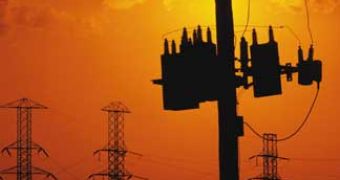GE Consumer & Industrial announced recently that it would create a new line of "smart" refrigerators that would be able to avoid running energy-consuming tasks, such as defrost cycles, during power grid peak times. Company officials say that this ability could help ease the burden that is currently being placed on the electric network in the United States, during daily peak hours.
The idea behind this initiative is to design appliances that could effectively communicate with the software governing the local grids. Such a connection could let the machines know when the right time to start their internal processes is. Of course, these commands could be overridden by customers who want to run a specific application during peak hours.
However, in order for such a system to work, a standardization of the devices used to govern power grids would be required. This is necessary if appliance companies are to create products that can detect when the off-peak time is. Next to refrigerators, dishwashers, dryers and microwave ovens could also be programmed to question the power network about the best time to start their cycles.
Basically, all new-generation "smart" appliances will be equipped with a "Smart Meter," which will measure the strain that a certain device places on the grid and the effects that this strain could have at any given time. After communicating with the power grid, the meter decides when the best time to start the machine is and programs itself to trigger a specific process.
Concerns about the strain appliances put on the grid appeared partly because more and more electrical plug-in hybrids are being bought, which means that, in a few years, the amounts of energy they will need will be huge. Considering that the growth rate cannot be offset by building new power plants, it becomes necessary for the United States to better manage the power grid it currently has. This type of measures could some day avert nation-wide black-outs, caused by grid over-solicitation.

 14 DAY TRIAL //
14 DAY TRIAL //